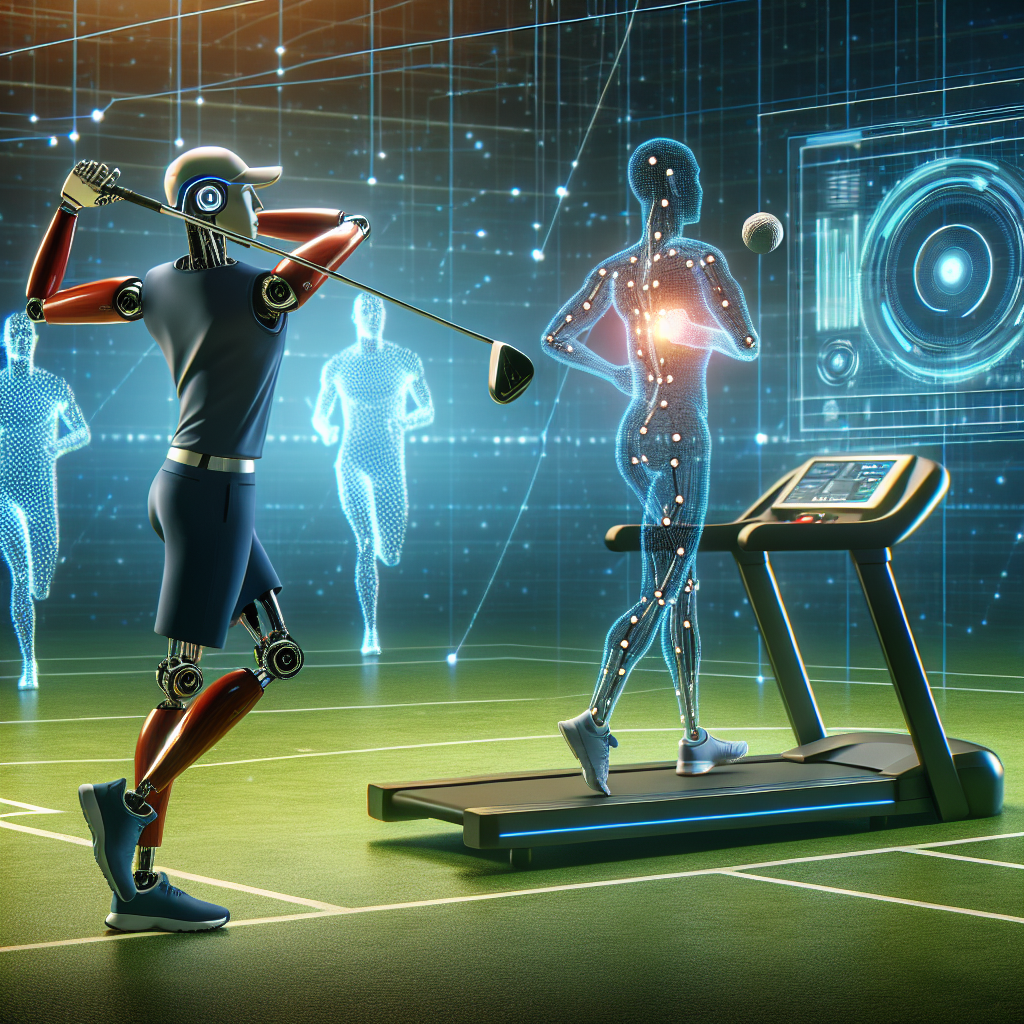Artificial Intelligence (AI) has been transforming various industries, and sports training is no exception. AI has revolutionized the way athletes train, analyze their performance, and improve their skills. By using AI technology, coaches and athletes can optimize their training routines, track their progress, and enhance their overall performance. In this article, we will explore how AI is changing the game in sports training and how it is benefiting athletes and coaches alike.
One of the key ways AI is revolutionizing sports training is through data analysis. AI algorithms can process and analyze vast amounts of data collected from wearable devices, cameras, and sensors to provide valuable insights into an athlete’s performance. By tracking metrics such as speed, distance covered, heart rate, and technique, coaches can identify areas for improvement and tailor training programs to address specific weaknesses.
For example, in soccer, AI-powered systems can analyze a player’s movements on the field, pinpointing areas where they may be losing possession or making errors. Coaches can then use this data to design drills and exercises that focus on improving those specific skills. This personalized approach to training can help athletes reach their full potential and enhance their overall performance on the field.
Another way AI is revolutionizing sports training is through virtual reality (VR) and augmented reality (AR) technology. These immersive technologies can simulate real-game scenarios, allowing athletes to practice in a realistic and safe environment. By combining AI with VR and AR, coaches can create interactive training programs that replicate game situations and help athletes develop their decision-making skills and tactical awareness.
In basketball, for example, AI-powered VR simulations can recreate game scenarios, such as shooting under pressure or defending against a fast break. Athletes can practice these scenarios repeatedly, honing their skills and improving their performance in actual games. This type of training can give athletes a competitive edge and help them perform at their best when it matters most.
Furthermore, AI is also being used to enhance injury prevention and recovery in sports training. By analyzing biomechanical data and monitoring athletes’ movements, AI algorithms can detect patterns that may lead to injuries and provide recommendations to prevent them. Coaches can use this information to adjust training programs and techniques to reduce the risk of injuries and keep athletes healthy and performing at their best.
In addition, AI-powered systems can also assist in rehabilitation programs by tracking an athlete’s progress and adjusting the intensity of exercises based on their recovery. By using AI technology, coaches can optimize the rehabilitation process, reduce downtime, and get athletes back on the field faster.
Overall, AI is revolutionizing sports training by providing coaches and athletes with valuable insights, personalized training programs, and innovative tools to enhance performance, prevent injuries, and improve recovery. As AI continues to evolve, the possibilities for its application in sports training are limitless, and the impact on athletes’ performance is undeniable.
FAQs:
Q: How does AI analyze an athlete’s performance?
A: AI algorithms process and analyze data collected from wearable devices, cameras, and sensors to track metrics such as speed, distance covered, heart rate, and technique. This data is then used to provide insights into an athlete’s performance and identify areas for improvement.
Q: How can AI help prevent injuries in sports training?
A: AI algorithms can analyze biomechanical data and monitor athletes’ movements to detect patterns that may lead to injuries. Coaches can use this information to adjust training programs and techniques to reduce the risk of injuries and keep athletes healthy.
Q: Can AI technology be used in rehabilitation programs for injured athletes?
A: Yes, AI-powered systems can assist in rehabilitation programs by tracking an athlete’s progress and adjusting the intensity of exercises based on their recovery. This can help optimize the rehabilitation process, reduce downtime, and get athletes back on the field faster.
Q: How can AI technology improve decision-making skills in athletes?
A: AI-powered VR and AR simulations can recreate real-game scenarios, allowing athletes to practice decision-making skills in a realistic and safe environment. This type of training can help athletes develop their tactical awareness and perform at their best in actual games.
Q: What are some examples of sports that are benefitting from AI technology in training?
A: Various sports, such as soccer, basketball, tennis, and track and field, are benefitting from AI technology in training. AI is being used to analyze performance data, enhance decision-making skills, prevent injuries, and optimize rehabilitation programs in these sports and many others.

